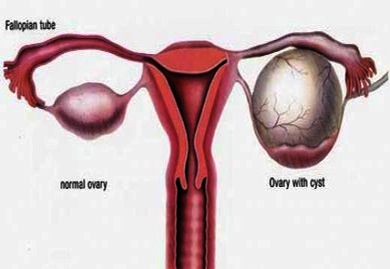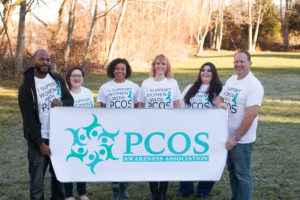
Polycystic Ovarian Syndrome (PCOS)
Polycystic Ovarian Syndrome (PCOS): What You Should Know? By PCOS Awareness Association.
September is Polycystic Ovarian Syndrome (PCOS) awareness month. On the blog today, the PCOS Awareness Association (PCOSAA) explains the significance of increasing awareness about this condition that affects one in five women of childbearing age.
The Importance of Raising Awareness About Polycystic Ovarian Syndrome
 Polycystic Ovarian Syndrome or PCOS is an endocrine disorder that is widely spread among women of all ages. In present days, there are over 10 million women that are diagnosed with PCOS, this number exceeding the numbers of all breast cancer, lupus, multiple sclerosis, and rheumatoid arthritis combined.
Polycystic Ovarian Syndrome or PCOS is an endocrine disorder that is widely spread among women of all ages. In present days, there are over 10 million women that are diagnosed with PCOS, this number exceeding the numbers of all breast cancer, lupus, multiple sclerosis, and rheumatoid arthritis combined.
The statistics show what a high frequency this illness has, which makes raising awareness among women about PCOS and its symptoms more than necessary. Having in mind that September is the PCOS awareness month, the timing couldn’t be better to talk about this illness and how can it affect women, so that we can take better care of ourselves.
Let us start with the basis. What is Polycystic Ovarian Syndrome? In spite of the fact that it is one of the most frequently met hormonal disorders among women, you won’t hear people talking about it too much. PCOS is not a medical topic that is too often debated, unlike other illnesses out there that don’t have the same incidence. PCOS is a hormonal imbalance in your body, causing uncomfortable symptoms both on the inside and outside of the body.
What is important to remember is that ovarian cysts may not be triggered by PCOS. There are cases in which the ovarian cysts have no connection with PCOS, being caused by something else. So cysts on the ovaries don’t mean you have PCOS. Although incurable, it is treatable.
There are ways to keep symptoms at bay and have a happier and pain-free life. Talking about symptoms, PCOS can produce a set of very uncomfortable symptoms, of which we can mention serious weight gain, loss of hair, feeling tired, depressed, suffer from panic attacks, headaches, dizzy spells, high levels of cholesterol, thyroid issues, sleeping problems, a constant feeling of thirst, cravings, mood swings, infertility, too much hair on the body and face, and others as well. If left untreated, polycystic ovarian syndrome can cause various severe diseases in time, such as cardiovascular diseases, type-II diabetes, hypertension, kidney problems, and even stroke.
ALSO SEE: Postpartum Infections and Pain | Treatment Tips
PCOS Awareness Association is fighting to raise awareness among women of all ages that they don’t have to suffer because of PCOS. This disorder can be kept under control and women that have it can lead a normal life. If you have any of the previously mentioned symptoms, don’t hesitate to ask for medical help and check to see if you have PCOS.
Our association can give you all the support you need to get the appropriate diagnosis, treatment, and aid in managing this condition with grace. Join our mission and let us help as many women as possible find out more about PCOS and ensure them that the condition is entirely treatable. No woman should suffer because of PCOS any longer.
Megan M Stewart
Founder of PCOS Awareness Association
www.pcosaa.org
The mission of the PCOSAA is to inform the public about Polycystic Ovarian Syndrome (PCOS) by providing information and resources for women to get tested, as well as providing support for women diagnosed with PCOS. Find more of them on their website.
Follow Pregnancy & Beyond on Instagram, Facebook and Twitter
CONCEIVING FEMALE REPRODUCTION FERTILITY INFERTILITY MOMMY TO BE PCOS PRECONCEPTION WOMENS HEALTH




